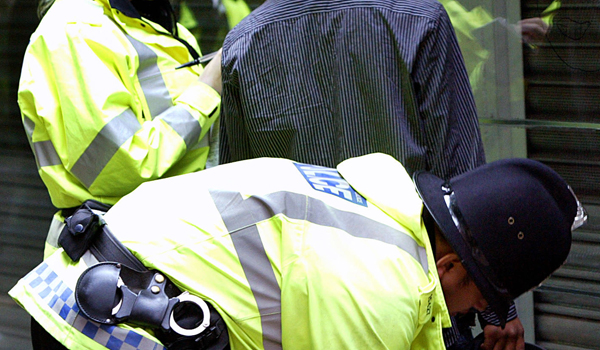MPs back expansion of police stop and search powers to tackle protests
The Government’s bid to allow police officers to use stop and search powers without suspicion to tackle disruptive protests has cleared another hurdle in Parliament.
The Public Order Bill aims to combat guerrilla tactics used by groups such as Just Stop Oil, Insulate Britain and Extinction Rebellion, which have included blocking roads, to the growing frustration of motorists.
Concerns have been raised over several parts of the Bill, including moves to allow officers to search people without cause in a designated area to look for items that could be used for “protest-related” offences.
The House of Lords had sought to introduce legal safeguards over the powers but MPs voted 270 to 200, majority 70, to reject the amendments.
Home Office minister Chris Philp told the Commons: “This power can only be used if a police officer reasonably believes certain protest-related offences will happen in the very near future, so it’s not a power that can be used wholly arbitrarily.”
Mr Philp said a legal framework already exists for all stop and search powers, including a requirement for police officers to give their name or identification number, the station to which they are attached and the grounds for the search.
He added: “The Government will amend Pace Code A to require that, where it is operationally practical to do so, forces must communicate the extent of the area authorised for the suspicionless stop and search, the duration of an order and the reasons for that order.”
Labour’s Shadow Home Office minister Sarah Jones said some safeguards wCre needed for the “wide-ranging power” which could be used against “any of us as we happen to walk through” a protest area.
She said: “The Government’s proposals risk further damaging the delicate relationship between the police and the public by significantly expanding stop and search powers to a protest context.”
Conservative former cabinet minister David Davis, who rebelled by voting to retain the changes made by peers, said: “When the Home Secretary in 2010, Theresa May, limited stop and search she did not do so out of an excess of liberal sympathy.
“She did so because at that point in time, stop and search was being used in such a way that it caused serious problems, race relations problems, in several parts of the country.
“That stop and search was largely targeted on stopping violence because at that point, and it may well still be true today, the perpetrators of knife crime and the victims of knife crime mostly came from minority communities and that’s why the minority communities themselves were not happy about the operation of the system but they understood why it was there.
“That is an order of magnitude different from using suspicionless stop and search for controlling demonstrations.
“Don’t get me wrong, I think we should have some fairly fierce legislation – we do have now – in dealing with the people who deliberately destroy the lives of the public or uproot and disrupt the lives of the public.
“I’m a great believer in the right of demonstration, but I don’t think it should go beyond a certain level.”
The Bill is currently in the legislative tussle known as parliamentary ping-pong, where a Bill passes between the Lords and Commons until agreement can be reached on its wording.
It remains to be seen whether the Lords will again contest this section of the Bill.


